|

by Tyler Durden
June 14, 2015
from
ZeroHedge Website
Spanish
version
Two months ago
we went inside the FED's "doomsday" bunker:
a 135,000 square foot facility built
in 1969, and nestled inside Mount Pony, east of Culpeper,
Virginia that housed some $4 billion in hard currency as well as
the central hub of FedWire, the computer network which allows
the nation’s banks to communicate and transfer funds.
It was meant to ensure that the US
banking system could still function
in the event there were still any banks left in the post-apocalyptic
world,
Culpeper Switch (officially the Federal Reserve System’s
Communications and Records Center) was equipped with everything a
FED official would need to survive in the wake of a nuclear
holocaust.
And yet, it was in a word, "spartan"
even by 1970s standards.
After all who wants to greet the
post-nuclear holocaust world surrounded by sterile plastic, a FED
spreadsheet (which caused the nuclear holocaust in the first place)
and all the cash in the world, especially since the only currency
accepted is silver, gold and of course, lead (not to mention a
bunker-full of voodoo economists).
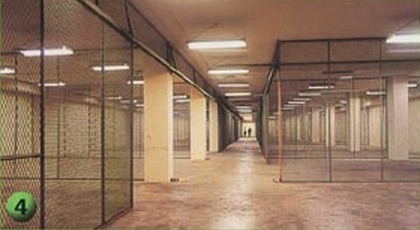
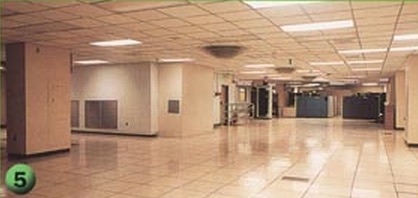
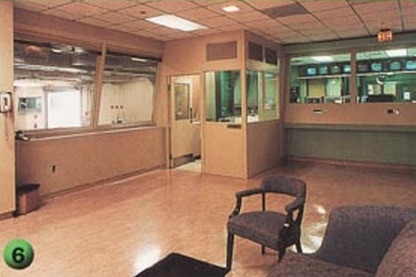
Then along came
Vivos, a company
which specializes in creating the ultimate in luxurious Doomsday
bunkers which, however, are not only for the world's richest, but
also for those who Vivos founder, California entrepreneur
Robert
Vicino, deems worthy:
anyone can apply for a spot in the
post-apocalypse world but only a select few will be admitted.
Until recently, the company's only
community shelter product was Vivos Indiana, a shelter
"strategically located in Midwestern America", which the company
describes as,
"one of the most fortified,
nuclear hardened shelters within our network, located within
a one-day drive from anywhere in the Midwest and the Eastern
seaboard of America.
Built during the Cold War
to withstand a 20 megaton blast, within just a few miles,
this impervious underground complex accommodates up to 80
people, for a minimum of one year of fully autonomous
survival, without needing to return to the surface."
Like a very comfortable 4-Star
hotel, this massive shelter is tastefully and comfortably
furnished and decorated, completely outfitted, fully stocked
with,
food, toiletries, linens,
medical supplies, a one year supply of fuel, a deep water
well, NBC filtration systems, geothermal heating and
cooling, bedroom suites, full size showers and bathrooms, a
theater area, dining area, lounge area, exercise equipment,
kennels, a garden area for fresh vegetables, laundry area,
abundant storage areas, ATV's, bicycles, tools, a workshop,
security devices; and, just about everything else that may
be needed to ride out virtually any catastrophic event.
You only need to bring your personal
clothing and medications. We've thought of everything else!
Far from any known nuclear targets,
this shelter is also strategically located a safe distance away
from
the New Madrid fault line, the Mississippi River, and all
oceans that might cause submersion as a result of a tsunami-type
event.
The site is also surrounded by
excellent farming, fishing, hunting and water resources.
As the images and video below show, the
Vivos Indiana complex indeed has thought of not only every
contingency but presents it in utmost luxury.
Below is the video Vivos has created to
showcase its Genesis tour:
The company's marketing is solid, if
somewhat morbid:
The Vivos network of underground
shelters is very real.
Watch this above video tour of one
of the massive shelters built to withstand a 20 megaton blast
from just 2 miles. This is one of the smallest Vivos shelters,
with accommodations for just 80 people for up to one year of
autonomous underground survival.
The largest provides shelter for
over 2,000 people. At complete build out Vivos will save about
6,000 people - 1 in every 1 million people on Earth in these
impervious shelters.
Something is coming. Vivos is
prepared for all of the predicted risks, whenever they may
occur. Vivos is the only co-ownership community shelter network
on the planet. Limited space is still available for those that
qualify.
Members are now boarding. Don't be left on the other side of
the door!
Some more snapshots of the Indiana
facility:
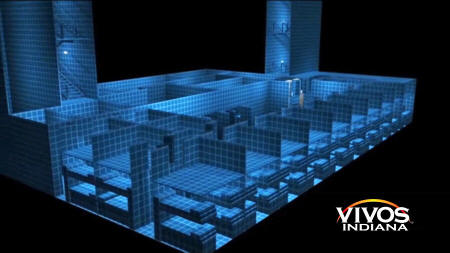
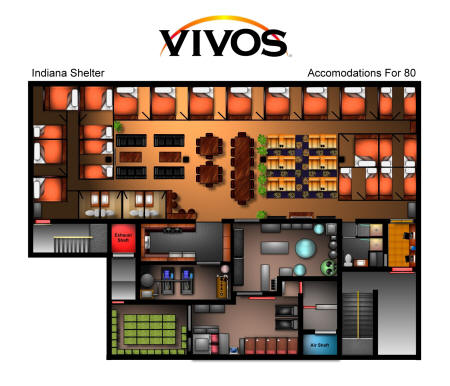
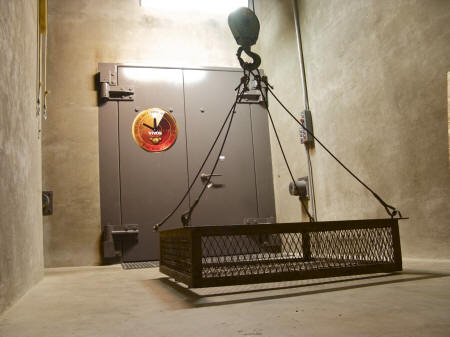
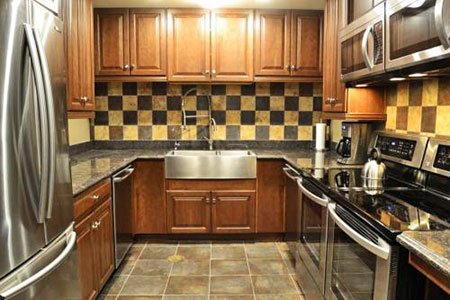
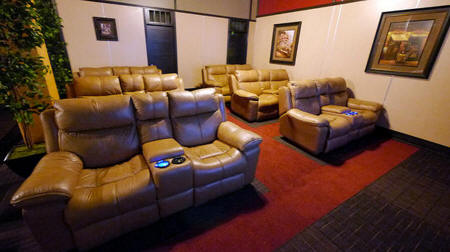
Of course, greeing the post-doomsday sun
in a 5-star hotel is not cheap.
Here is the price list from the
company's website:

Still, when it comes to billionaires,
$35,000 is a joke.
They would much rather spend a whole lot
more just to stand out among their equally showy peers.
It is for them, as well as for Europe's
billionaires, where should a Grexit indeed take place and things
quickly escalate, culminating in a way that nobody can anticipate,
that Vivos has just opened its second major ultra-luxury bunker:
Vivos Europa One, dubbed "The
Elite Shelter for the Privileged Few", which in addition to
everything else
even has what Vivos calls the "only
private human DNA vault on Earth", which offers donors the
opportunity to collocate their DNA not in just one place but
two: in both the United States and Europe.
"Both deep underground shelters
offer virtually impervious protection in their hermetically
sealed vaults."
Whether stored for years,
decades or more than a century,
the Vivos Global Genome Vault
pool
will be a perpetual depository,
preserving life on Earth as we
know it.
Or rather, the DNA stored will be of
those billionaires who are not only rich but megalomaniacal enough
to believe they are worthy to be the template material of all future
humans. Which means all of them.
And speaking of
everything else,
there is a lot.
As the
Mail reports, the Vivos Europa One shelter is located
in Rothenstein, Germany and is one of the most fortified and massive
underground survival shelters on Earth.
Its 6000 inhabitants can live up to a
year without leaving the luxury premises.
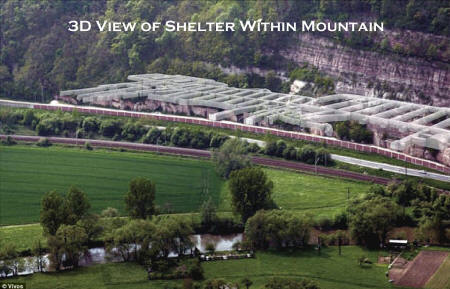
According to
Forbes, the bunker was,
"originally built by the Soviets
during the Cold War, this shelter was a fortress for military
equipment and munitions.
After the DDR was merged with
Germany, the German government inherited this relic and intended
to use it for the same purpose of weapons storage.
However, due
to a law prohibiting the storage of ammunition near a major
highway, the German Government soon realized they could not
continue with their plans and decided to auction this 76 acre
complex.
A wealthy investor purchased the
entire property, along with all of its improvements, both above
and below ground."
That investor was Vivos' founder
Robert Vicino whose "billionaire bunkers" are now on both
continents, and who says,
"We are proud to bring this epic
project forward in these increasingly dangerous times."
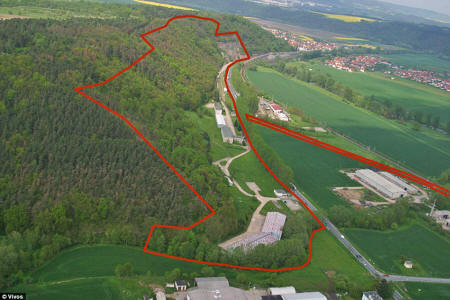
The bunkers consists of a planned
survival complex that is comparable to billionaire's mega-yacht or
mansion - "but much bigger."
It boasts swimming pools, theaters,
gyms, restaurants, custom apartments, outdoor space and helicopter
service. And as one would expect, the bunker can withstand a nuclear
blast, chemical agents, earthquakes, tsunamis, or another disaster.
Unlike the Indiana complex where the cost is a relatively cheap
$35,000 one time charge for adults, the European price list is still
secret, although with the property valued at $1.1 billion, it is
likely that the final price will be much higher.
Underground shelter
is currently in 'turnkey operational condition.'
Most importantly, in addition to paying
a lot of money for the privilege of reserving a key for the
luxurious doomsday bunker, residents will be accepted based on their
'skills' and 'talents.'
It is unclear just which billionaire skills Vicinio deems critical for perpetuating humanity:
being a legendary
insider trader who pays off the government with Picasso painting,
being the world's greatest crony capitalist, creating a criminal
bank enterprise while scolding people for not being "rich enough",
and so forth.
Some more details:
the complex includes
over 21,108 square meters (227,904 square feet) of secured, blast
proof living areas and, an additional 4,079 square meters (43,906
square feet) of above-ground office and warehouse buildings,
including a train servicing depot.
The typical chamber area is 5 meters
wide (16.40 feet), by 6 meters tall (19.68 feet) and 85 meters
(278.87 feet) long.
Collectively there are over 5 kilometers (3.1
miles) of continuous tunnel chambers (equivalent to 71 Boeing 747’s
fuselages stretched end to end). All shelter areas are located
behind 3 separate nuclear blast and radiation proof vehicle
entrances, and a number of other passages for access by people only.
Each of the three main tunnel entrances
includes an outer security door system, followed by a 40 ton
hydraulic truck access door with hardened steel rods which expand
into the surrounding encasement, and a second set of massive steel
doors providing an airtight seal shut, protecting against chemical,
biological and gas intrusion.
The underground main traffic corridors
are large enough to allow mechanical transportation of heavy
equipment to almost any point within the complex.
Each family in the complex will be
provided with a private 2,500-square-foot apartment, which they can
design and build to their own specifications. They may decide to add
a pool, a theater or a deluxe bathroom. They will also have access
to a hospital area, several restaurants and a bakery.
Other common area amenities will include
roadways, a wine cellar, prayer rooms, classrooms, a television
station and a detention center.
Once each member’s private
accommodations are completed, furnished and fully outfitted, their
respective quarters will be locked and secured, limiting access to
their families and staff prior to lockdown; while Vivos will operate
and maintain all common areas (under and above-ground) pending a
catastrophic event.
Members will arrive at their own
discretion, prior to lockdown, landing their private planes at
nearby airports.
Vivos helicopters will then be deployed to
rendezvous with each member group, and safely fly them back to the
shelter compound, behind the sealed gates from the general public.
Members will then enter the shelter and access their private
quarters.
Each family will pay a base amount for
their respective living quarter’s area, along with their fair share
of the ongoing stand-by costs for operational management, staffing,
taxes, insurance, maintenance, utilities, and restocking as needed.
In short:
a complete turnkey operation
that every zombie in the post-apocalypse world will desperately try
to penetrate and feast on the inhabitants.
And now, without further ado, here is
how the world's richest will live in the real world version of the
Walking Dead:
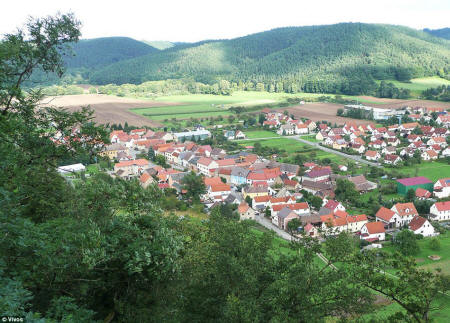
With its rolling heels
and stunning woodland,
the village of Rothenstein looks like an
unlikely location for the bunker
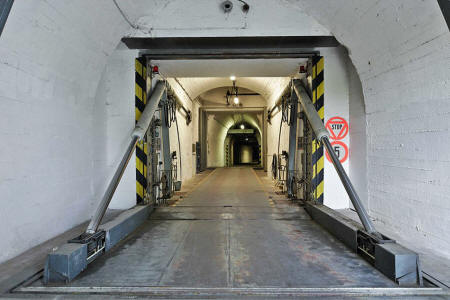
The survival bunker can
apparently withstand a
nuclear blast, chemical agents, earthquakes,
tsunamis - and virtually any other disaster.
Above, this photo shows
a drive-thru blast-proof door at the complex,
which will likely be
available only to the super-rich.
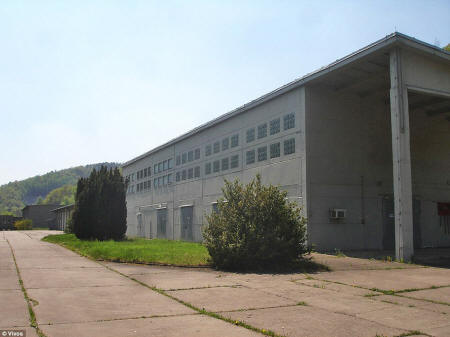
The Rothenstein facility
also boasts 43,906 square feet of above-ground space.
Above, an
outdoor power station
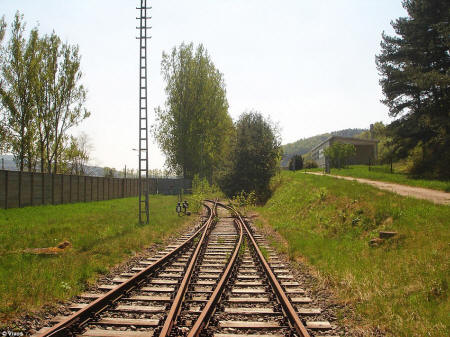
Vivos
Europa One shelter also features its own railway and helicopter
service,
which picks up residents from nearby airports
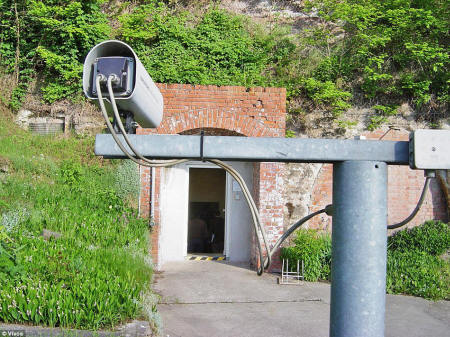
Each family in the
complex will be provided
with a private 2,500-square-foot apartment.
Above, a personnel entry door
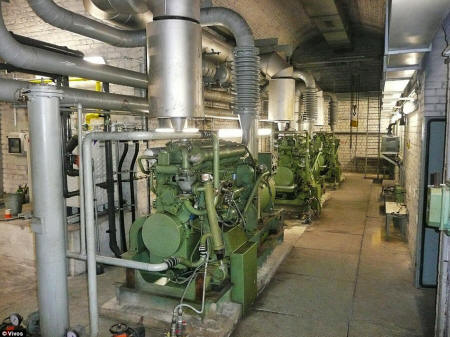
The luxury shelter was
originally built by the Soviets in the Cold War
as a fortress for
military equipment.
Above, its engine room.
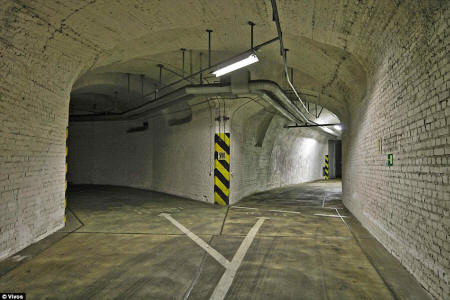
Underground, the bunker
features countless tunnel chambers,
each with their own security
system and blast-proof doors
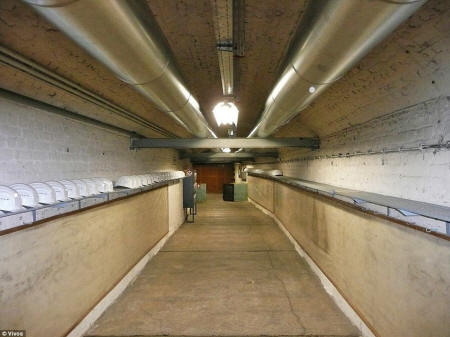
The personnel entry
corridor inside the shelter contains an array
of white hard hats,
with steel pipes running across the ceiling
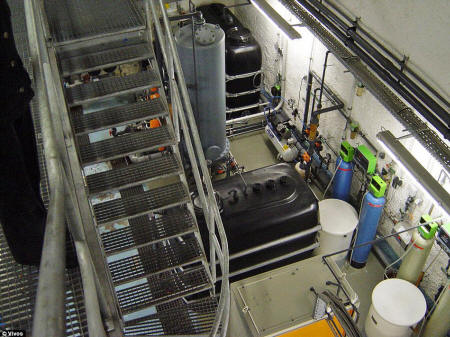
Water treatment plant:
It also has its own self-contained water and power generation
system,
as well as climate and ventilation systems

This photo depicts
'typical living quarters' in the shelter.
It remains unclear how
much each family will have to pay
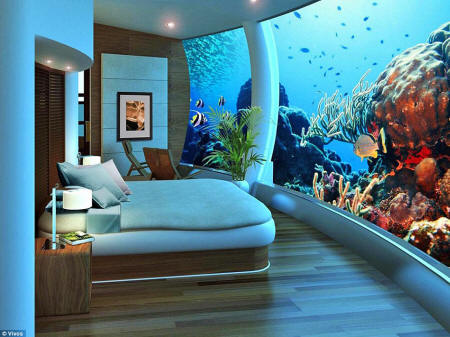
This photos shows a
bedroom in the Vivos Europa One shelter,
which is being dubbed the
world's 'ultimate doomsday escape'
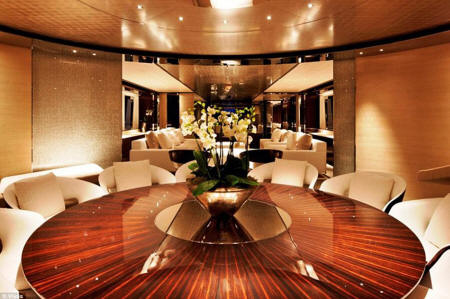
A dining room in the
underground bunker
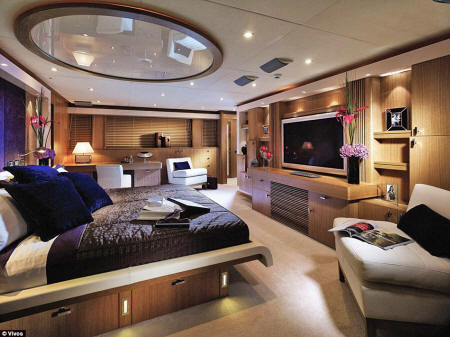
Residents can design and
build their apartments to their own specifications.
They may decide
to add a theater (pictured)
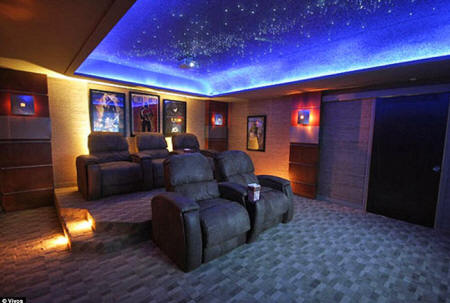
Other common area
amenities will include
roadways, a wine cellar and prayer rooms.
Above, a theater

The complex features all
modern furnishings
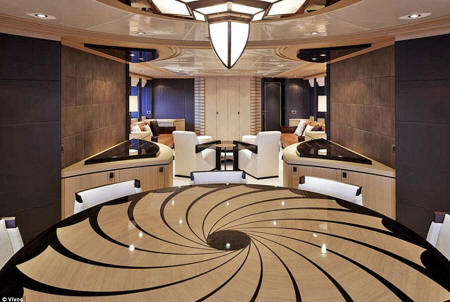
Above, another living
quarters
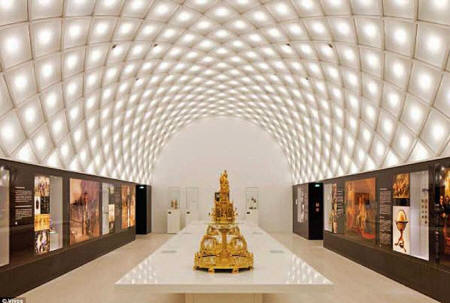
Alongside its
catastrophe-proof features,
the bunker will include a collection of
zoological species and an artifact archive
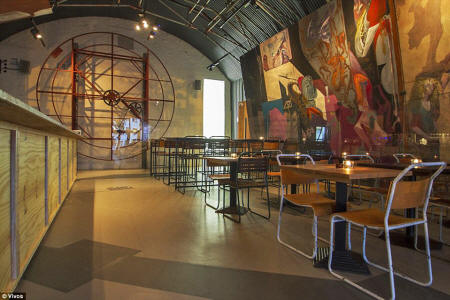
Most importantly, the
bunker in Rothenstein boasts
227,904 square feet of blast-proof
living areas,
including this planned pub
|






























